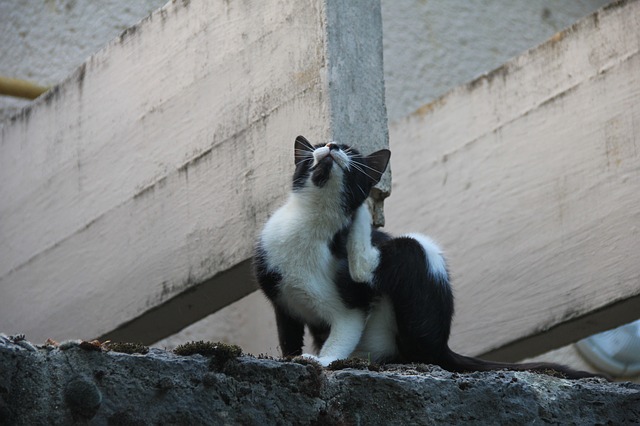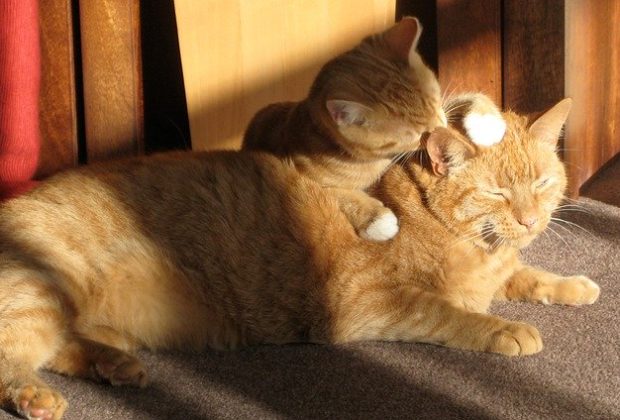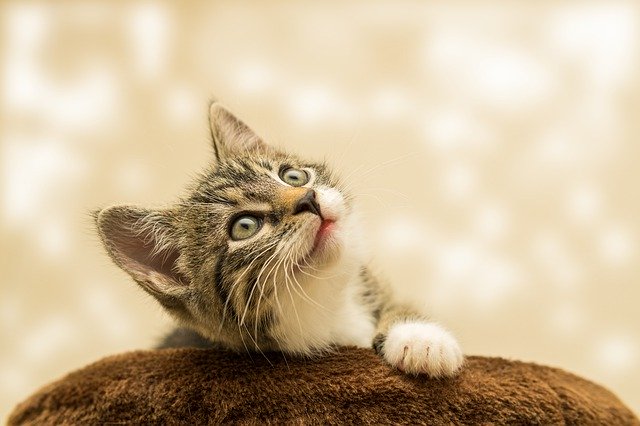Like us, our feline friends need their ears cleaned. While many cats are naturally finicky self-groomers, some are not so great at it. You would, therefore, need to step in if your cat belongs in the latter category, and even if he does self-groom, he would still need your help to prevent a buildup and infections
In this article, we’ll attempt to cover the following and more; why you should clean your cat’s ears, how to tell if your kitten’s ears need cleaning, how to prevent an ear infection, how to clean a kitten's ears, and also what to do if your cat has mites. We’ll also cover how often you should clean a cat’s ears and what to do if your cat has an ear infection.
Table of Contents
Why You Should Clean Your Cat’s Ears
As said earlier, many cats are great at self-grooming, and it is something you probably already know from being around one for any length of time. They also have a built-in cleaning mechanism that naturally causes the ear wax to migrate towards their external ear area.
Sometimes, however, the inbuilt self-cleaning mechanism will not be enough, you would need to intervene. This is especially true if your cat has certain ear health issues such as blood blisters, ear infections, ear mites, or a buildup because of the issues above.
Regular cleaning will also help you detect and treat ear issues on time. And if you suspect that your cat could suffer from ear problems, you should speak with your vet immediately or book an appointment.
Just like ours, our felines’ internal ears are super-delicate, and early detection and treatment will lessen the chances of it degenerating into something worse, like total or partial hearing loss. Regular cleaning will also help provide relief for any sort of discomfort your feline may have been dealing with before you stepped in.
How to Know If Your Cat Has an Ear Infection
With regular checks, you should be able to detect abnormalities in the area, but there are still certain signs you can look out for, and they include;
- Ear discharge and pain
- Ear odor or odor around his ears
- Ear sensitivity or pain around the ears when checked or prodded during cleaning
- Masses or swelling in the ear canal or around the ear area
- Excessive itching, pawing, or rubbing of the ears

How to Cleaning Your Kitten’s Ears Effectively:
Step One
Cleaning a cat’s ears can be a simple procedure once you know how to. We’ll outline the process below. For an effective clean, however, general grooming is required. While this grooming and the ear cleaning itself can be left to a professional groomer, you can also do it yourself.
Begin by removing matted, excess, or dirty hair from around the ear flap and the canal. Left untouched, heavily matted hair and moist ear flaps with surrounding hair will reduce the airflow to the ear canal, causing wax blisters and debris to build up.
When removing excess hair from the ear canal, do it carefully to avoid causing any damage to it and also to keep discomfort at a minimum.
You should have a vet or professional groomer do it if you’re uncertain of doing it without causing any harm to your pet. Generally though, cleaning a cat’s ears is easy, and with some practice, you should be able to carry it out yourself.
Step Two
- After grooming the areas around the canal, start by pulling the earflap back, then fill the canal with a vet-recommended cleaning solution.
- Have gauze at hand to catch any spills
- Gently massage the ear base for a few seconds and then allow your kitten shake out the solution.
- Clean out the excess liquid from the ear canal by wrapping gauze around your finger. This shouldn’t hurt or damage your kitten’s ears as our fingers usually won’t go far enough to cause any damage.
- Repeat the process on the other ear.
Tips for Preventing Problems When You Clean Your Kitten’s Ears
- Before cleaning your cat’s ears, you want to ensure that he is as relaxed as possible. Do not force the cleaning especially if your cat seems uncomfortable or stressed.
- Do not also use Q-Tips/cotton buds or any other invasive or aggressive tool in your cat’s ears. These can be painful and also cause severe damage.
- You may need to enlist the help of a second person while cleaning your cat’s ears. They can help you hold your cat to keep him from moving as you clean.
- If you’re cleaning your cat’s ears alone, gently but firmly secure him on your laps to prevent injuries or discomfort if he moves. Wrapping him in a towel can also help to keep him secured and prevent any harm.
- Unless your cat seems too stressed, you should try to clean both ears on the same day. Leaving the job half-done is not only inconveniencing for you or anyone assisting but also uncomfortable for your cat.
- Because your cat will need to shake his head to let out the excess cleaning solution, ensure you close your eyes and mouth before letting him do so.
- Only clean places you can easily see in the canal. Do not try to probe as doing so can cause damage to your cat’s delicate ears or even cause an infection.
The Right Cleaning Solution for Your Kitten
Your vet will recommend a suitable cleaning solution for your pet. However, you can still shop for one yourself if you notice a buildup and plan to go DIY on it. When shopping for a cleaning solution, pick a mild one formulated specifically for a pet’s ears.
Completely avoid using alcohol, vinegar, or hydrogen peroxide on a cat’s ears. They’re harsh and can easily irritate your cat’s skin or increase the discomfort in an already tender or inflamed ear canal.
Ear cleaners for pets come in different types. While some are formulated to break up the wax, others dry the ear canal. Depending on the condition of your feline’s ears, you may need a combination of ear cleaning products, but this may only be done if recommended by a vet.
Cats and Mites/Ticks
Apart from debris buildup in your feline’s ears, ear mites and ticks remain some of the most common causes of ear infections in felines.
You can find these tiny parasitic insects on the surface of the ear canal. Like other parasites, they feed off your pet. However, they feed on wax, tissue fluid, and dirt in your cat's ears. They cause physical discomfort to your pet, and if left unchecked and untreated, infestations may eventually worsen to cause bacterial, fungal infections, and general ear inflammation.
In severe and untreated cases, total or partial hearing loss may occur.

Symptoms of Mite Infestation in Cats
- Your cat may paw/scratch at his ears excessively depending on the severity of the infestation. You may also notice him shaking his head frequently in attempts to get the parasites out.
- Because some cats are more bothered by mites than others, you may or may not notice the above symptoms even in the presence of an active infestation.
- As mites feed off ear wax, they can stimulate the wax producing glands inside the canal. The result is a black, crusty buildup in the ears. This buildup consists of blood, dead mites, wax, and debris. In worse cases, a buildup can grow thick enough to block the ear canal.
- A severe mite infestation can also lead to hair loss on the outer ear and ear canal.
- Dark discharge in the infested ear depending on the severity
- Ear odor from the discharge
- Swelling, irritation, or inflammation in the affected ear
Treating a Mite Infestation in Cats
If you suspect a mite or tick infestation, consult your vet immediately for diagnosis and treatment/treatment recommendation. With a magnifying otoscope, he would be able to confirm your suspicion and treat it accordingly.
Waste little time before getting an expert diagnosis, as any other condition can cause an ear infection or the symptoms above apart from parasite infestation.
How Often Should a Cat’s Ears Be Cleaned?
Not every cat will need an ear-cleaning regularly. Some may never require it in their lifetime. On the other hand, many will require regular or routine cleaning if they seem prone to ear inflammation.
Your cat's lifestyle and activity level can also be a deciding factor. If you have an outdoor-loving cat, he may need more ear-cleaning than an indoor cat.
So, while once every few months will be enough for most cats, some will need more frequent cleaning. You can aim for a weekly or fortnightly cleaning if you feel your cat could use it.
Ever tried cleaning your cat's ears? How did it go, and do you have any of your own tips on how to clean a kitten's ears? Share in the comment section below. Thoughts/questions? Also, share in the comments.
About the Author
Kirsten Heggarty
Kirsten created The Pet Handbook with the aim of sharing her knowledge about pets, pet food, healthy habits, and more. All of her advice is based on years of her own experience with her pets, and feedback that she has received from grateful readers about her tips. If you want to know more please read the About Me page.









